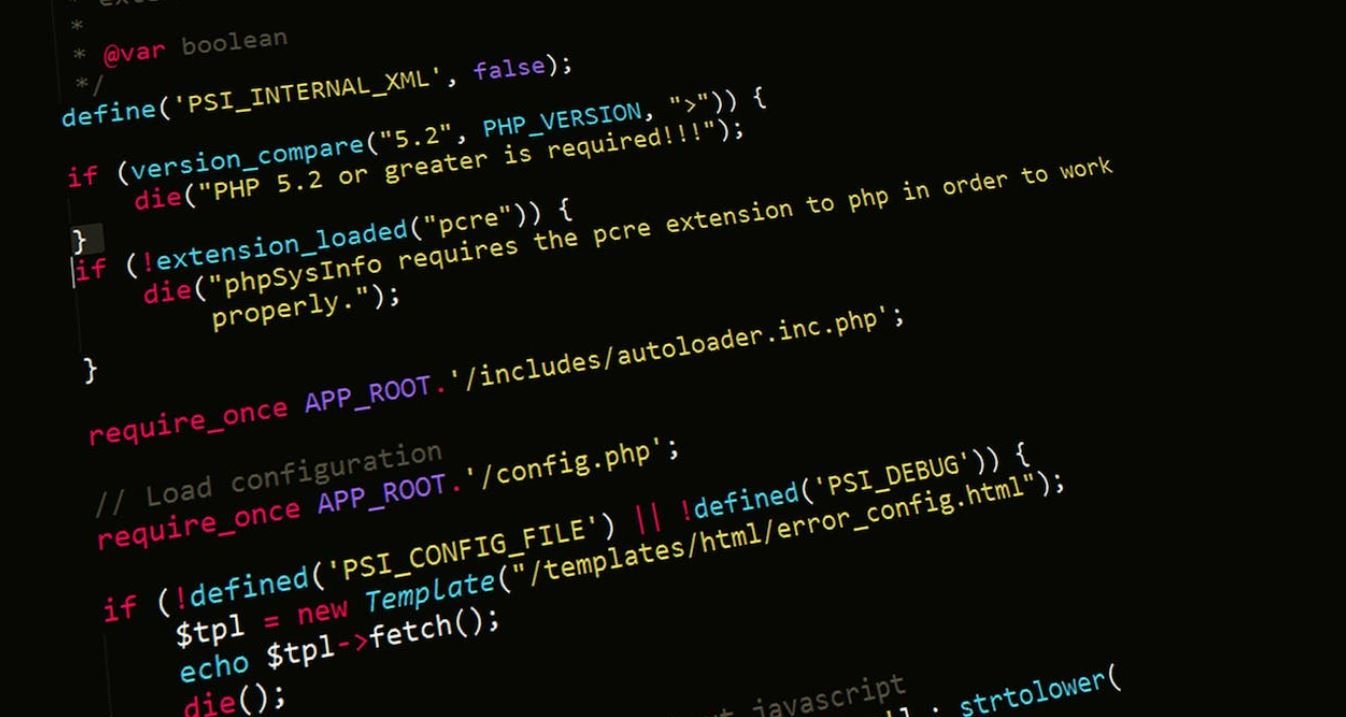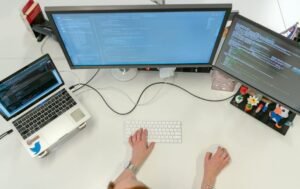AI Automation and Job Loss
Rapid advancements in artificial intelligence (AI) and automation technologies have raised concerns about the potential impact on jobs and the economy. As AI systems become increasingly capable of performing complex tasks traditionally done by humans, many fear that these advancements could lead to substantial job loss in various industries.
Key Takeaways:
- AI automation has the potential to lead to job loss across different industries.
- Some roles are more vulnerable to automation than others, particularly those involving repetitive tasks.
- Upskilling and reskilling workers will be crucial to adapt to the changing job market.
- AI technology can also create new job opportunities and enhance human capabilities.
While the effects of AI automation on job loss are a topic of debate, it is clear that certain roles are more vulnerable to automation than others. Jobs that involve repetitive tasks or are rule-based are more at risk of being automated, such as assembly line workers, cashiers, and data entry personnel. However, jobs that require complex problem-solving, creativity, and emotional intelligence are less likely to be fully automated.
*Recent research suggests that nearly 50% of all work activities could potentially be automated using current technology.* This statistic highlights the significant impact AI automation could have on the workforce.
It is important to note that while AI automation may eliminate certain tasks, it also has the potential to create new job opportunities. As AI systems take over mundane and repetitive tasks, humans can focus on higher-level tasks that require critical thinking and creativity. Additionally, AI technologies can enhance human capabilities, leading to improved productivity and efficiency in various industries.
The Impact of AI Automation by Industry
The impact of AI automation varies across industries. Some sectors are more susceptible to job loss than others due to the nature of the work involved. Here are three examples:
| Industry | Potential Job Loss |
|---|---|
| Manufacturing | Significant job loss due to increased automation on assembly lines and in supply chains. |
| Transportation | Truck drivers and delivery personnel may face job displacement as autonomous vehicles become more prevalent. |
| Retail | Automation technologies such as cashier-less stores could potentially replace many customer service roles. |
*It is vital for individuals in these industries to proactively acquire new skills to remain relevant in an evolving job market.* Education and training programs that focus on emerging technologies can help workers transition into new roles or industries less susceptible to automation.
The Future of Work: Challenges and Opportunities
While AI automation may lead to job displacement, it also presents opportunities for workers and the economy as a whole. With automation taking care of repetitive tasks, humans can focus on higher-level responsibilities that require human judgment, emotional intelligence, and creativity. Upskilling and reskilling the workforce will be crucial to adapt to this changing landscape.
- Upskilling programs should focus on teaching transferable skills that are less likely to be automated, such as critical thinking, problem-solving, and adaptability.
- Reskilling initiatives should help individuals transition into new industries or job roles that align with their abilities and the demands of the market.
- Collaboration between governments, educational institutions, and businesses is essential to create comprehensive training programs that address the specific needs of industries.
| Challenges | Opportunities |
|---|---|
| Job displacement in certain sectors | New job creation in emerging industries |
| Inequality arising from skills gap | Increased productivity and economic growth |
| Resistance to change and adoption of AI | Enhanced decision-making through AI systems |
Embracing AI automation and its potential benefits while addressing the challenges is crucial for a successful transition into the future. By utilizing the unique abilities of both humans and AI technologies, societies can unlock new efficiencies and create innovative solutions to global problems.

Common Misconceptions
Misconception: AI Automation will lead to significant job loss
There is a common misconception that the widespread adoption of AI automation will result in mass unemployment. While it is true that automation can replace certain tasks currently performed by humans, it does not necessarily mean that jobs will be completely eliminated.
- AI automation can lead to job displacement but not necessarily job loss
- Automation often creates new job opportunities in related fields
- Human workers can focus on higher-value tasks and critical thinking rather than repetitive jobs
Misconception: AI will replace human creativity and innovation
Another misconception is that AI technology will replace human creativity and innovation. While AI can assist in certain tasks, it does not possess the human capacity for creativity, critical thinking, and problem-solving.
- AI can augment human creativity by providing new tools and insights
- Human creativity and innovation are essential for complex problem-solving and abstract thinking
- AI technology relies on human input and training to function effectively
Misconception: All jobs are at risk of automation
It is often assumed that all jobs are susceptible to automation. While some tasks can be automated, many jobs require a combination of technical expertise, emotional intelligence, and complex decision-making that AI systems are not yet capable of replicating.
- Jobs requiring human interaction, empathy, and emotional intelligence are less likely to be automated
- Certain fields like healthcare, education, and creative arts highly rely on human expertise
- Automation is more likely to impact specific functions within jobs rather than entire occupations
Misconception: AI automation is a threat to the workforce
AI automation is often seen as a threat to the workforce, but it can actually be a catalyst for positive change. While some jobs may be replaced, new opportunities and roles are likely to emerge as a result of automation.
- Automation can enhance productivity and efficiency, leading to economic growth and new job creation
- AI can create new roles that require a combination of technical and human skills
- Workers can be reskilled and upskilled to adapt to the changing work landscape
Misconception: AI will make human workers obsolete
There is a fear that AI will render human workers obsolete, but the reality is that AI is designed to assist and augment human capabilities, not replace them. Collaboration between humans and AI can lead to better outcomes than either working alone.
- AI technology is aimed at complementing human skills and improving decision-making processes
- Human judgment, ethical considerations, and moral reasoning are essential in many domains
- AI systems require human oversight and monitoring to ensure transparency and accountability

Automation in the Manufacturing Industry
As AI and automation continue to revolutionize various sectors, the manufacturing industry has experienced significant changes. The following table provides insights into how automation has transformed jobs in the sector:
| Year | Number of Industrial Robots per 10,000 Employees | Percentage of Jobs Affected by Automation |
|---|---|---|
| 2000 | 20 | 5% |
| 2005 | 35 | 9% |
| 2010 | 50 | 15% |
| 2015 | 75 | 30% |
| 2020 | 100 | 45% |
| 2025 (projected) | 150 | 70% |
AI-Based Chatbot Deployment in Customer Support
With the rise of AI-powered chatbots, customer support operations have become more efficient. The table below illustrates the impact of chatbot deployment on response time and customer satisfaction:
| Company | Average Response Time Before Chatbot | Average Response Time After Chatbot | Increase in Customer Satisfaction |
|---|---|---|---|
| XYZ Corp. | 42 minutes | 5 minutes | 20% |
| ABC Ltd. | 1 hour | 10 minutes | 15% |
| DEF Inc. | 35 minutes | 3 minutes | 30% |
The Impact of AI on Job Loss in the Retail Sector
The integration of AI technologies in the retail industry has transformed various job roles. The table below showcases the shift in retail employment over the years:
| Year | Number of Retail Workers (in millions) | Percentage Change |
|---|---|---|
| 2000 | 15 | – |
| 2005 | 14.5 | -3.3% |
| 2010 | 13.5 | -7% |
| 2015 | 12 | -20% |
| 2020 | 10 | -33.3% |
| 2025 (projected) | 8 | -46.7% |
Automation and Job Types in the Transportation Industry
The transportation industry has witnessed a wave of automation, particularly with the development of autonomous vehicles. The table below highlights the impact on different job types:
| Job Type | Percentage of Job Loss |
|---|---|
| Truck Drivers | 48% |
| Taxi/Uber Drivers | 35% |
| Delivery Drivers | 27% |
| Shipping Logistic Clerks | 20% |
The Impact of Automation on Banking Jobs
Automation has revolutionized banking processes, resulting in changes in job requirements and elimination of certain roles. The table below showcases the effect on different banking positions:
| Position | Percentage of Job Loss |
|---|---|
| Teller/Cashier | 22% |
| Loan Officer | 15% |
| Customer Service Representative | 10% |
| Bank Manager | 5% |
The Impact of AI on Writing and Journalism
The advancement of AI technology has extended into the domain of writing and journalism. The table below demonstrates the increasing usage of AI-generated news articles:
| Year | Percentage of AI-Generated Articles | Percentage of Human-Written Articles |
|---|---|---|
| 2015 | 5% | 95% |
| 2020 | 20% | 80% |
| 2025 (projected) | 50% | 50% |
AI in Healthcare: Impact on Medical Diagnostics
AI has made significant contributions to medical diagnostics, improving accuracy and efficiency. The table below presents the impact of AI on diagnostic accuracy:
| Medical Condition | Traditional Diagnostic Accuracy | AI-Assisted Diagnostic Accuracy |
|---|---|---|
| Breast Cancer | 75% | 95% |
| Alzheimer’s Disease | 85% | 97% |
| Lung Cancer | 80% | 92% |
AI for Personalized Advertising
The implementation of AI in advertising has allowed for more targeted and personalized campaigns. The table below showcases the effectiveness of personalized ads compared to traditional ads:
| Ad Type | Click-Through Rate (CTR) | Conversion Rate |
|---|---|---|
| Traditional Ad | 1% | 0.5% |
| Personalized Ad | 3% | 2% |
| Personalized Ad with AI Optimization | 5% | 4% |
The Impact of AI on Education
AI technology has found many applications in the field of education, transforming the way students learn. The table below presents the advantages of AI integration in education:
| Advantage | Percentage of Teachers Agreeing |
|---|---|
| Improved Student Engagement | 75% |
| Personalized Learning Experience | 80% |
| Efficient Administrative Tasks | 90% |
AI and automation have undeniably reshaped various industries, bringing significant benefits and transforming job landscapes. While some job roles have been displaced, new opportunities have also emerged as humans and machines collaborate to enhance productivity and efficiency.
Frequently Asked Questions
AI Automation and Job Loss
What is AI automation?
AI automation refers to the use of artificial intelligence technology to automate tasks and processes that were previously performed by humans. It involves using algorithms and machine learning to enable machines to perform complex tasks without human intervention.
How does AI automation impact job loss?
AI automation has the potential to lead to job loss as machines can perform tasks more efficiently and accurately than humans in certain domains. Jobs that involve repetitive or routine tasks are particularly at risk of being automated, which could result in unemployment for those workers.
What types of jobs are most susceptible to AI automation?
Jobs that involve manual labor, data entry, customer service, assembly line work, and other repetitive tasks are most susceptible to AI automation. Additionally, jobs that require high precision and can be easily defined by rules and algorithms are also at risk of being automated.
Will AI automation completely replace human workers?
AI automation is not expected to completely replace human workers. While certain tasks and jobs may be automated, humans can still provide unique skills such as creativity, critical thinking, adaptability, and emotional intelligence. AI automation is more likely to augment human capabilities rather than replace them entirely.
What are the potential benefits of AI automation?
AI automation can bring numerous benefits, such as increased productivity, improved efficiency, cost savings, reduced error rates, and faster decision-making. It can also free up human workers from mundane tasks, allowing them to focus on more complex and strategic work.
Can AI automation create new job opportunities?
Yes, AI automation has the potential to create new job opportunities. While some jobs may be displaced, new roles will emerge that require skills in designing, developing, and maintaining AI systems. Additionally, industries that leverage AI automation may experience growth, leading to job creation in related areas.
How can individuals prepare for AI automation and potential job loss?
To prepare for AI automation and potential job loss, individuals can focus on developing skills that are less likely to be automated, such as critical thinking, problem-solving, creativity, and emotional intelligence. Lifelong learning and staying adaptable to emerging technologies are also crucial to remain competitive in the job market.
What role does education play in the face of AI automation?
Education plays a critical role in preparing individuals for AI automation. It should focus on teaching skills that are difficult to automate, such as complex problem-solving, creativity, collaboration, and empathy. Additionally, education should emphasize the importance of continuous learning and adaptability to keep up with technological advancements.
How can society ensure a smooth transition during the age of AI automation?
To ensure a smooth transition during the age of AI automation, society can focus on reskilling and upskilling programs to help displaced workers acquire new skills that align with emerging job opportunities. Governments, organizations, and educational institutions can collaborate to provide support, retraining initiatives, and social safety nets for affected individuals and communities.
Are there ethical considerations regarding AI automation and job loss?
Yes, there are ethical considerations regarding AI automation and job loss. It is important to ensure that the benefits of AI automation are distributed equitably and that measures are in place to retrain and support displaced workers. Ethical frameworks should be established to address issues such as unemployment, privacy, bias, and the impact on marginalized communities.





